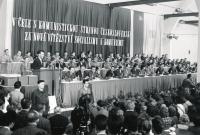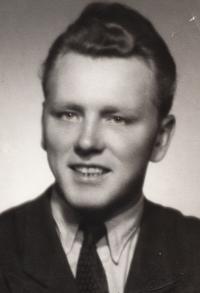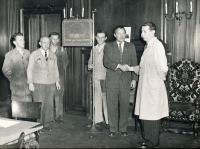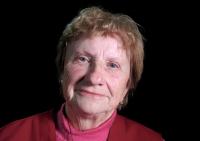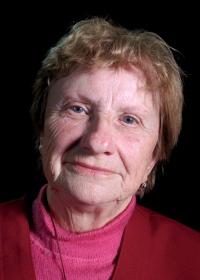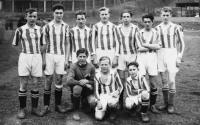I don’t like that everything we built up during Communism is now in private hands

Download image
Ludmila Grafnetrová was born on 15 September 1933 in Grygov near Olomouc. Her parents had a farm, she and her two sisters helped tend the field and care for the cattle. In 1947 she started attending a secondary school of agriculture in Olomouc. During a visit to her aunt in Prague she met her future husband Ervín Grafnetr. They married in 1953, and the witness moved to Prague. She would travel to Moravia to help her parents with their field, but she and her husband finally persuaded them to give up the farm and join the local united agricultural cooperative. Her husband had completed training at the Walter Works in 1947, and he was employed at the factory his whole life until his retirement. He worked himself up from apprentice to experienced lathe operator, and he joined his career with the Communists and trade unionists. He was the chairman of the factory committee of the Revolutionary Trade Union Movement. They both adhered to Communist ideals.
